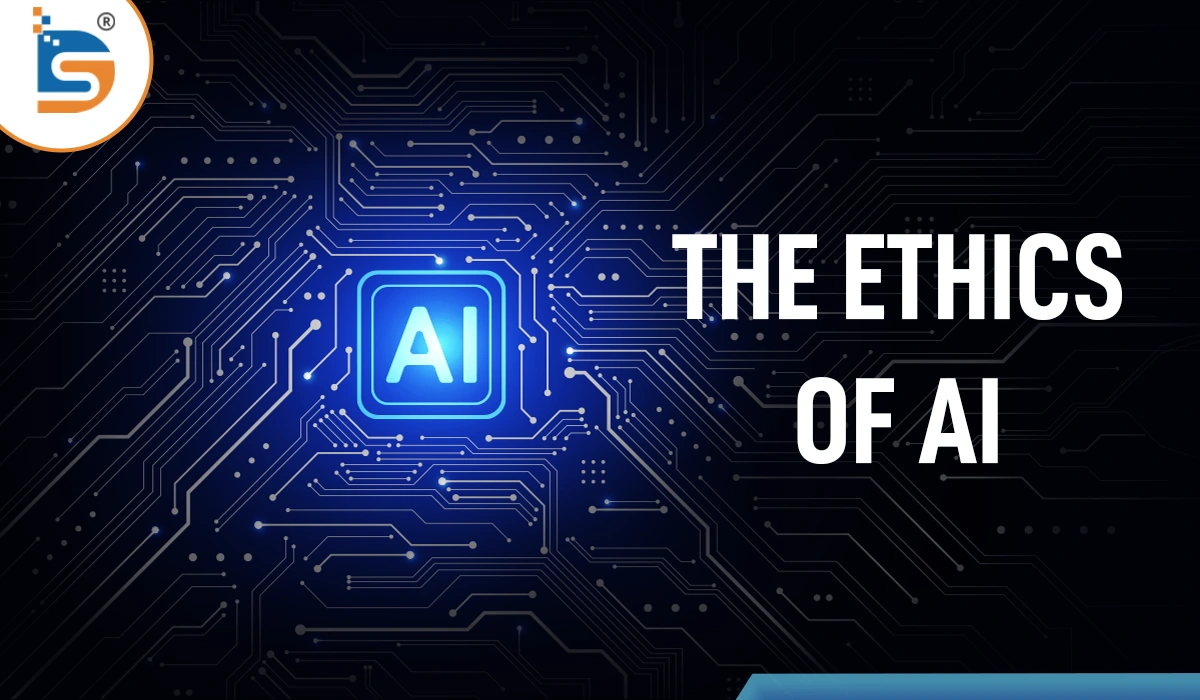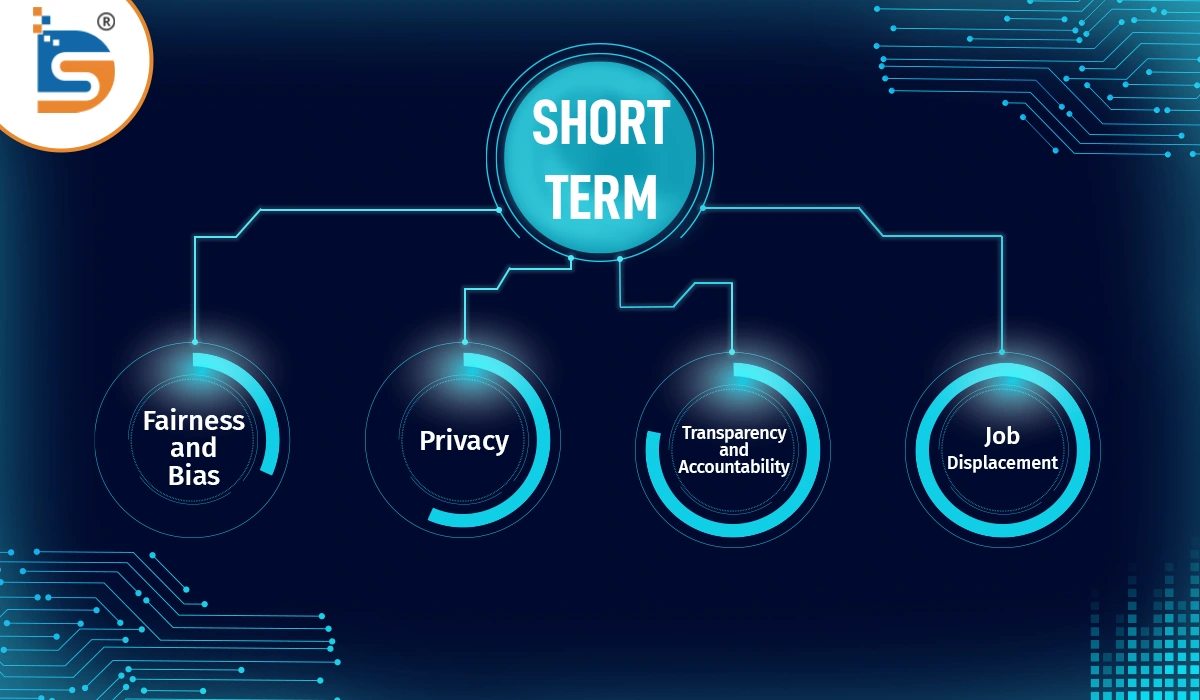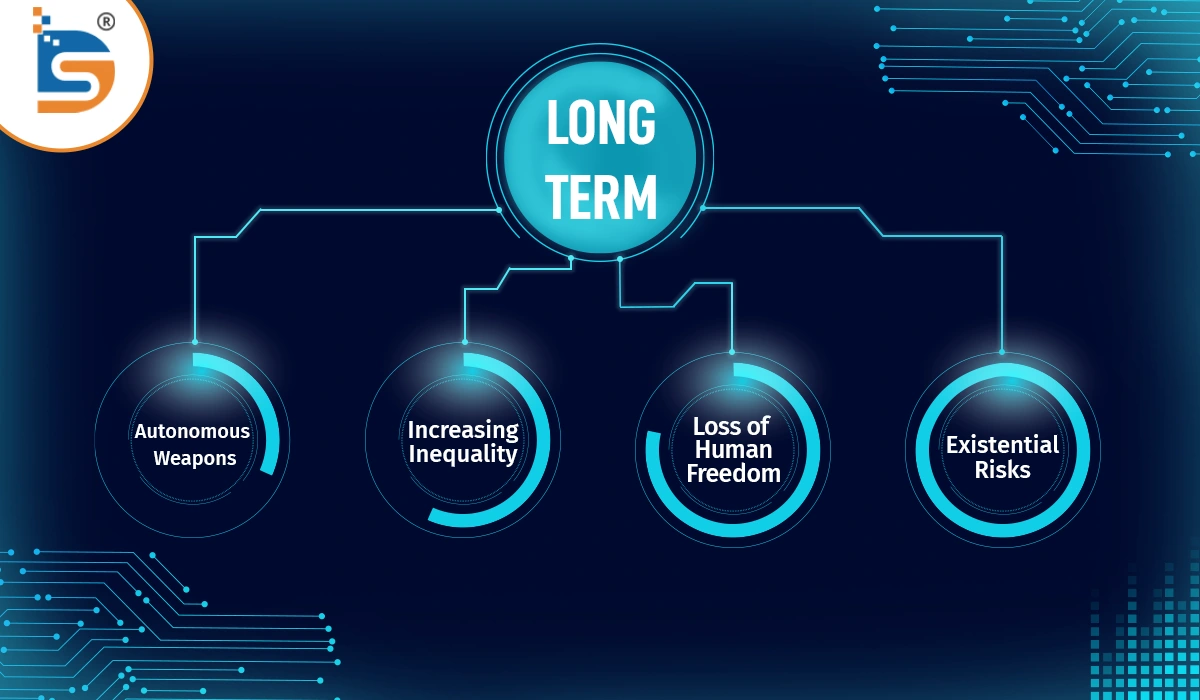The Ethics of AI
BY : Sdreatech
25-Oct-2024

Artificial intelligence is changing many industries and regular routines. There are significant ethical issues that come from its fast development. However, AI could greatly improve innovation and efficiency while also raising ethical issues like bias, transparency, privacy, and job displacement.
Short-term Ethics of AI

1. Fairness and Bias
Bias is one of the most crucial problems facing an ethical AI. Most of the time, AI systems learn based on a lot of data, which can show unfair and biased behavior. If these systems are not managed properly, they can make biases worse, which can lead to unfair results in hiring, security, law enforcement, and other areas.
2. Privacy
Privacy is a very important ethical issue in artificial intelligence. For AI systems to work properly, they require a lot of personal data to do issues like make customized tips, identify faces, or do advanced analytics. Privacy concerns arise when we depend so much on data, especially when information is misused, monitoring devices are used, and data is collected.
3. Transparency and Accountability
AI systems are "black boxes," which creates questions regarding accountability because users cannot see how decisions are taken. Transparency in AI requires that the decision-making processes be easy for humans to understand. To be responsible, you have to figure out who is in charge of AI behaviors and who is wrong or harmful. Both of these things help make AI systems that are fair, clear, and in line with ethical values.
4. Job Displacement
Artificial intelligence-driven automation is quickly changing industries, displacing workers in regular or manual jobs. Ethical issues are raised by the effects on displaced employees and the unfairness in the economy. For ethical job changes, it's important for companies and the government to help employees by providing training opportunities, creating new jobs available, and creating social safety.
Long-term Ethics of AI

1. Autonomous weapons
The development of autonomous weaponry systems increases the stakes as AI develops. These systems may eventually go to conflict, taking away the requirement for humans to get involved. There are ethical concerns about who is in charge, who is responsible, and the possibility that AI will make choices that go against human values or lead to harm that was not expected.
2. Increasing Inequality
AI technology may benefit rich people more if a few large businesses or states control it. If this happens, it might increase economic and social gaps even bigger, which means only the rich can benefit from the chances AI develops.
3. Loss of Human Freedom
The most ethical problem with AI is that it limits people's freedom. It's more likely that AI systems will take away people's freedom as they make more decisions. AI can be used to help people make major decisions, like in healthcare or other areas. This might be harmful for ethical behavior and personal duties.
4. Existential Risks
The long-term growth of highly developed AI systems, particularly those that are smarter than humans, may create existential threats if they are not handled properly. Some of these risks are unforeseen circumstances in which AI acts in ways that are harmful or uncontrolled by humans.
The future of AI ethics
- Future AI ethics will balance the link between new technologies and ethics. When it comes to AI, especially in healthcare and banking, we need to focus on technological accountability and transparency.
- To eliminate inequality, we must fix AI bias and establish better systems. Ethical problems will be shaped by global inequality and sustainability, which will make sure that AI development is ethical and secure. As AI uses more personal data, it will be more important to protect humans rights and keep their data private.
- The ethical concerns of AI systems working independently require security to maintain human control over automated vehicles and military applications. Monitoring and working will help set global standards to minimize AI risks in disagreement, tracking, and misinformation.
- Also, as AI transforms businesses, individuals who understand ethics will try to make AI technologies that use less energy to protect the environment and secure jobs.
Conclusion
The ethical consequences of AI are infinite and complex, so we must keep thinking about and solving them. The social benefits of AI depend on solving ethical challenges, including bias, privacy, and loss of employment. Managing these issues and future challenges is crucial. Working with technologists, regulators, and ethicists to keep processes fair, protect rights, and support the positive aspects of society is one way to make AI responsibly help people.